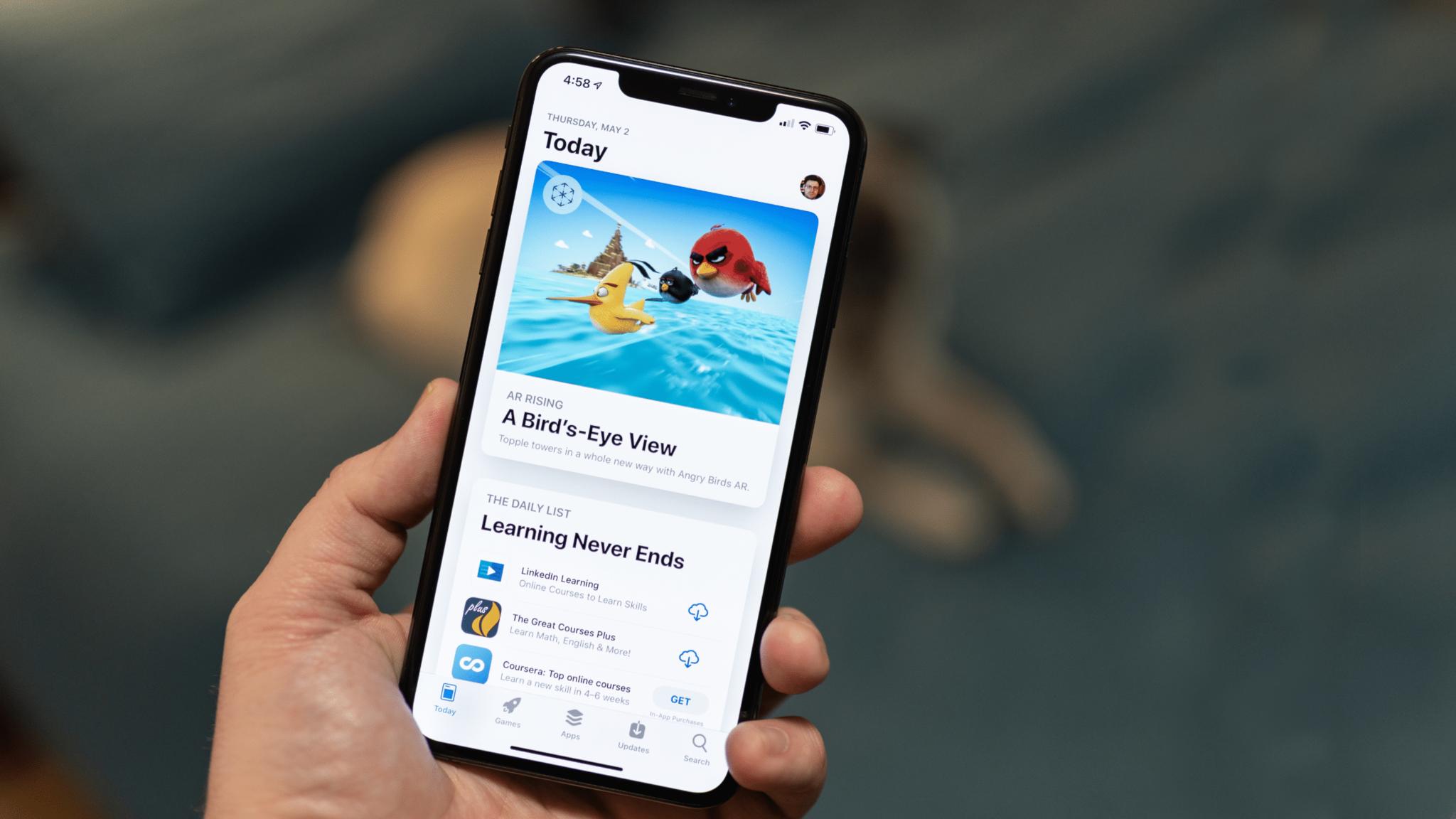Apple tweaked its EU App Store alternative business terms to help stop developers from bankrupting themselves
A popular app could have cost developers a fortune.

iMore offers spot-on advice and guidance from our team of experts, with decades of Apple device experience to lean on. Learn more with iMore!
You are now subscribed
Your newsletter sign-up was successful
When Apple released the big iOS 17.4 software update yesterday it brought with it a slew of changes and improvements. But if you're in the European Union there is no doubt as to what the biggest change was. With the release of iOS 17.4, Apple added support for third-party app stores for the first time, a move that comes at the behest of the EU's Digital Markets Act. As part of that, Apple is offering developers alternative business terms as well.
Those business terms allow developers to choose a new system in terms of the way Apple takes its cut. While previously all developers paid Apple 30% (or 15% for small businesses) of the money made via the App Store, the new terms change things somewhat. Under the new terms, Apple would charge developers a Core Technology Fee to run the App Store. The Core Technology Fee is 0.50 euros per download after the first 1 million downloads, but there were always concerns about what would potentially happen after that million-download threshold was met. As an example, a developer could potentially offer an app that goes viral out of nowhere, causing a huge number of downloads to be made. If that developer doesn't have a robust monetization system behind them, things could get out of hand and land them with a bill they can't possibly afford.
Now, it seems Apple has taken that feedback on board and has updated its documentation to confirm that developers who try out the new business terms but want to switch back to the original ones can do so, although there are notable caveats to be aware of.
Get out of jail card
The theory here is that developers can test the waters and then switch back if they need to, as noted by Games Fray. Apple's updated stance was shared via its developer website yesterday as the iOS 17.4 download went live.
"Over the past several weeks, we’ve communicated with thousands of developers to discuss DMA-related changes to iOS, Safari, and the App Store impacting apps in the European Union," the post begins. "As a result of the valuable feedback received, we’ve revised the Alternative Terms Addendum for Apps in the EU to update the following policies and provide developers more flexibility."
There are three changes being made by Apple, but the most notable here is the fact that developers can switch back to the older App Store terms should they want to.
"To help reduce the risk of unexpected business changes under the new terms, such as reaching massive scale more quickly than anticipated, or if you simply change your mind, we’ve created a one-time option to terminate the Addendum under certain circumstances and switch back to Apple’s standard business terms for your EU apps," Apple explains. However, the addendum makes for grim reading. Those who want to switch back must not have used any of the new tools brought about via the DMA which means they cannot have launched an alternative app store, nor published their apps in one run by another party. They also must not have used any alternative payment options, either.
iMore offers spot-on advice and guidance from our team of experts, with decades of Apple device experience to lean on. Learn more with iMore!
Apple also updated its stance on the requirement for those who want to run an app marketplace to provide a €1,000,000 letter of credit ahead of time. Now, it says that developers may also simply "be a member of good standing in the Apple Developer Program for two continuous years or more, and have an app that had more than one million first annual installs on iOS in the EU in the prior calendar year."
More from iMore

Oliver Haslam has written about Apple and the wider technology business for more than a decade with bylines on How-To Geek, PC Mag, iDownloadBlog, and many more. He has also been published in print for Macworld, including cover stories. At iMore, Oliver is involved in daily news coverage and, not being short of opinions, has been known to 'explain' those thoughts in more detail, too.
Having grown up using PCs and spending far too much money on graphics card and flashy RAM, Oliver switched to the Mac with a G5 iMac and hasn't looked back. Since then he's seen the growth of the smartphone world, backed by iPhone, and new product categories come and go. Current expertise includes iOS, macOS, streaming services, and pretty much anything that has a battery or plugs into a wall. Oliver also covers mobile gaming for iMore, with Apple Arcade a particular focus. He's been gaming since the Atari 2600 days and still struggles to comprehend the fact he can play console quality titles on his pocket computer.
